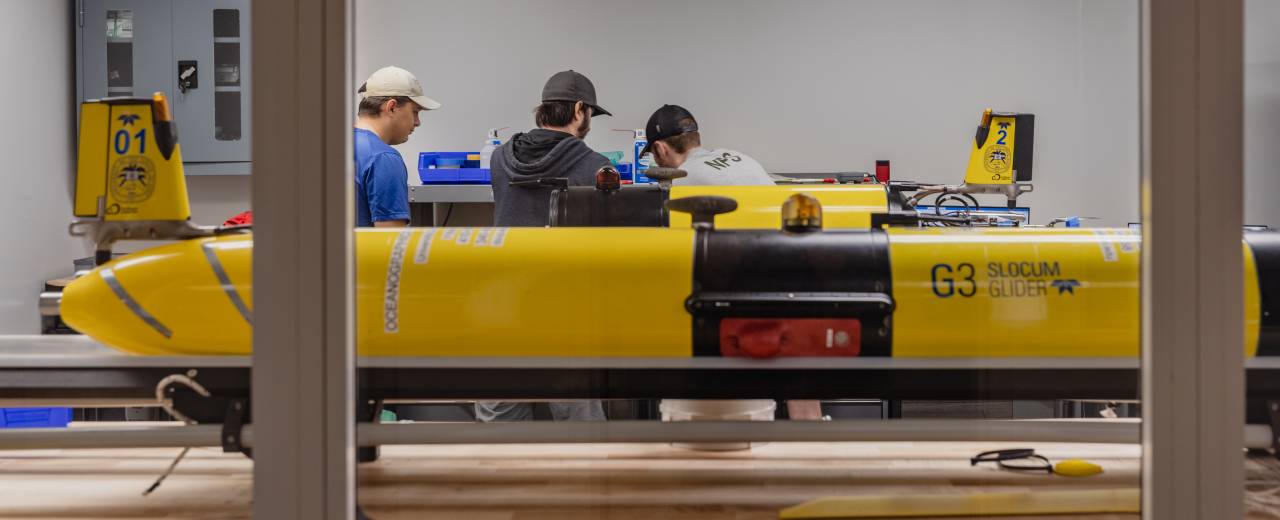
By utilizing two autonomous ocean gliders, researchers at the University of the Virgin Islands (UVI) have enhanced their research capabilities and data collection. With three decades of oceanic research at his disposal, UVI Courtesy Professor Douglas “Doug” Wilson leads the University’s efforts to collect data vital to understanding the oceans in this region.
“Ocean gliders are a really good tool for working widely in the region studying the ocean further, where you can’t dive or it’s too far to take a boat,” said Wilson.
In 2023, a National Science Foundation Major Research Instrumentation award allowed the University to acquire its ocean gliders and the National Oceanic and Atmospheric Administration (NOAA) sponsored projects to collect data in the Virgin Islands during the 2023 hurricane season to improve hurricane forecast models.
An ocean glider, equipped with multiple sensors, can remain at sea for months, continuously profiling the ocean to depths up to 1000 meters (3300 feet). The glider follows a programmed path, efficiently progressing by moving forward using the lift from its fixed ‘wings’ as it moves up and down by changing its buoyancy. After completing a profiling dive, which can take 3-4 hours, the glider surfaces to transmit data via satellite and receive new navigation instructions.
To support the project, a UVI Ocean Glider Lab, located in the UVI 13D Research and Innovation Center, was established to manage and operate the gliders including instrument preparation and maintenance, data management, mission planning and piloting.
For more information visit https://www.uvi.edu/research/center-for-marine-environmental-studies/gliders/index.html

